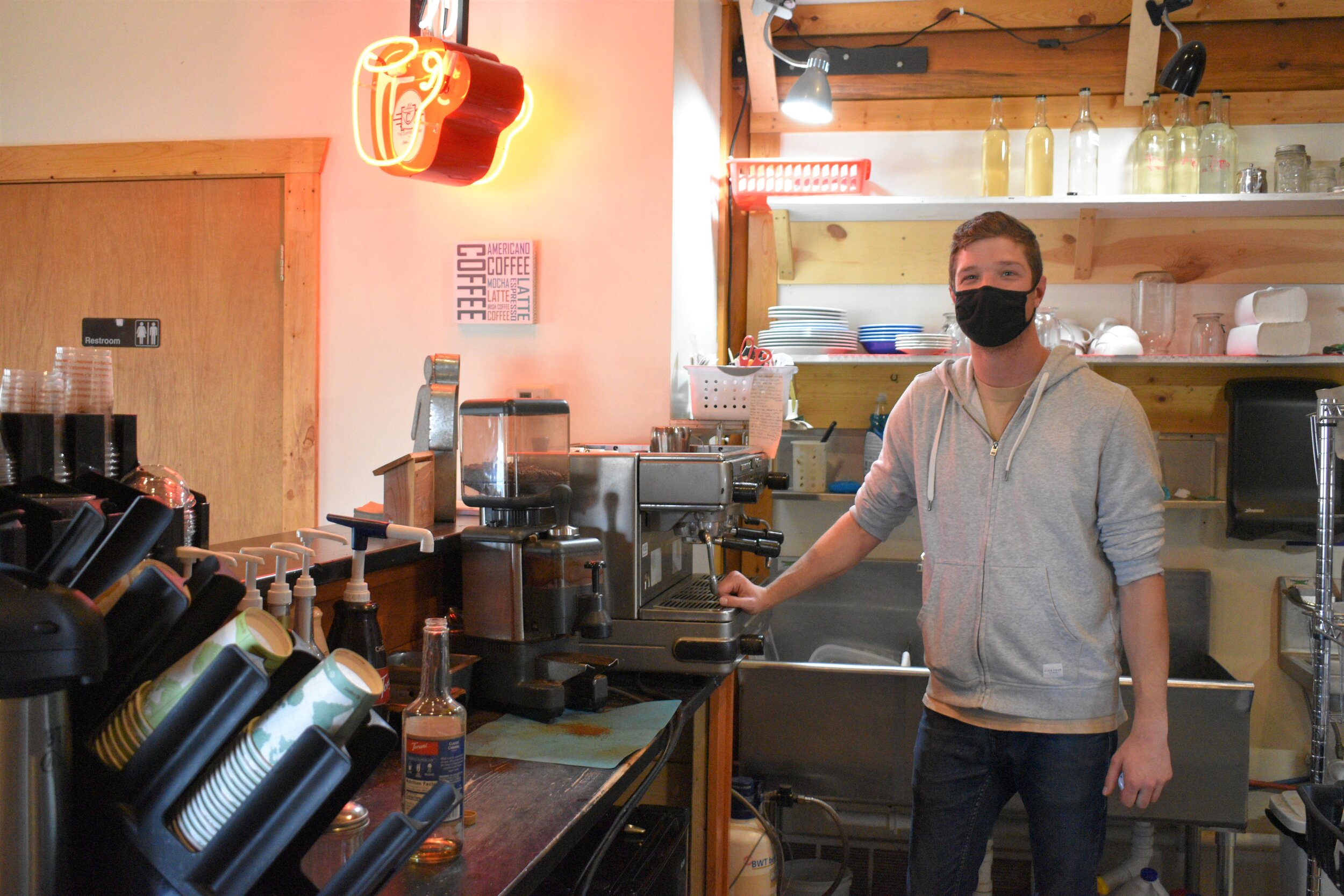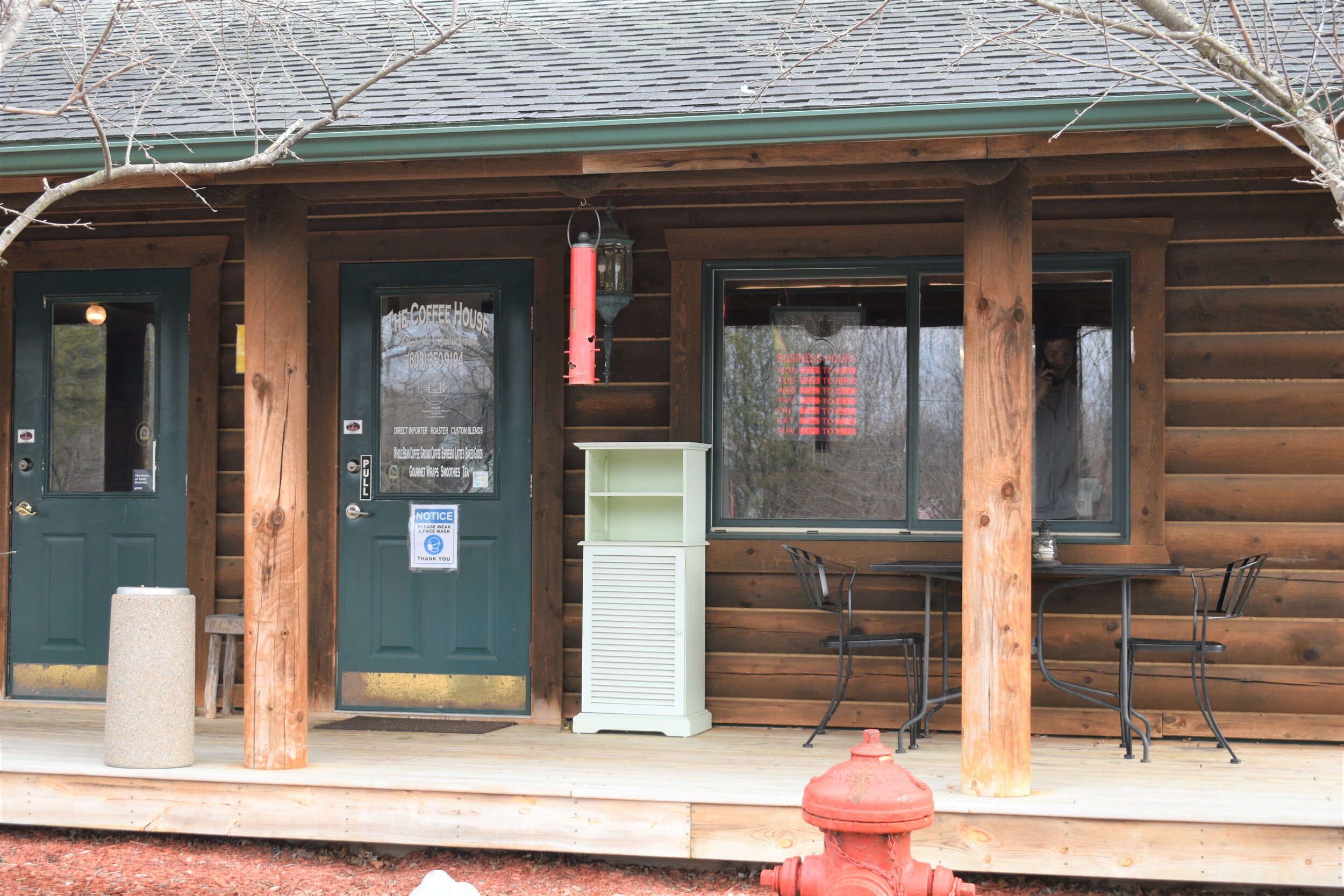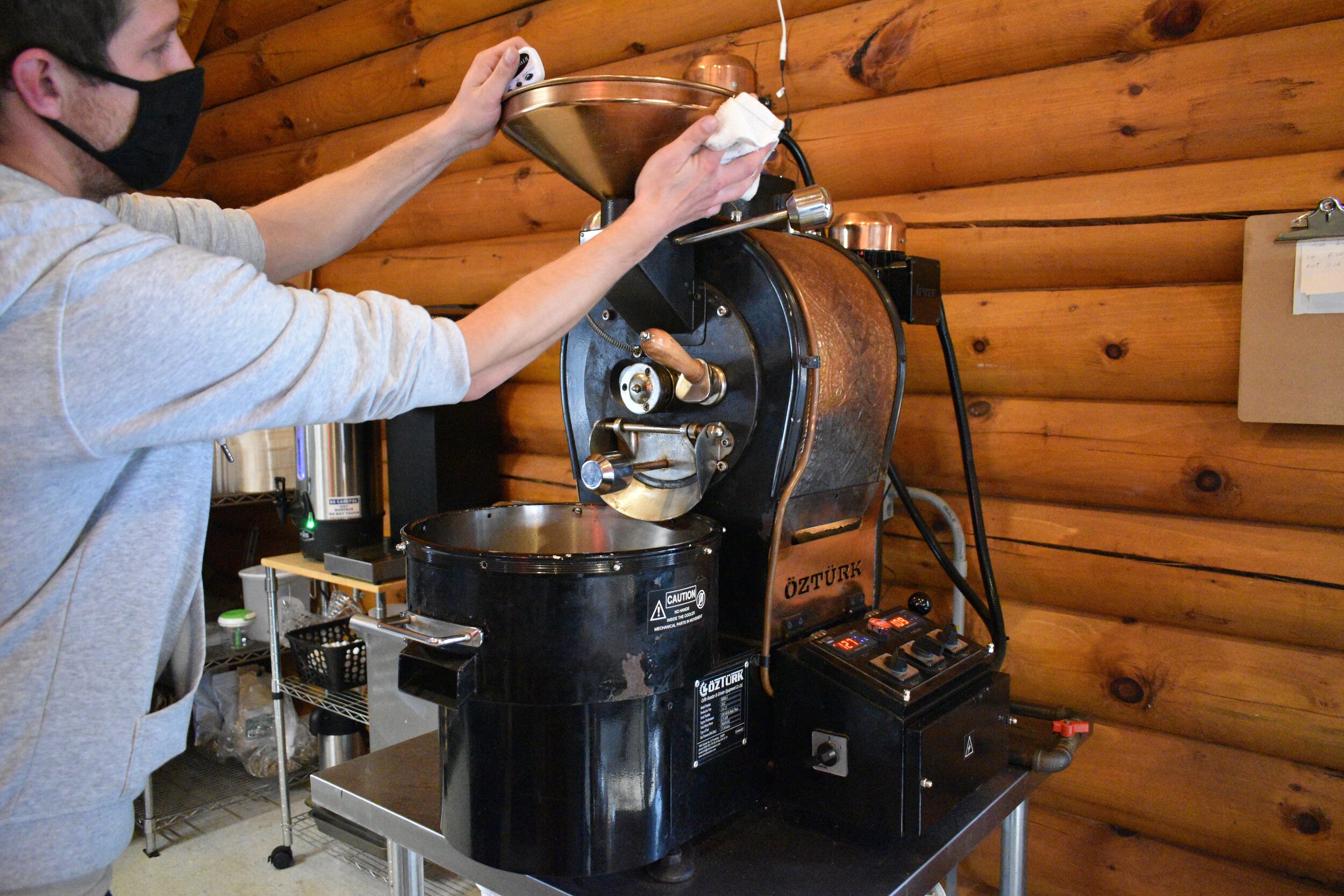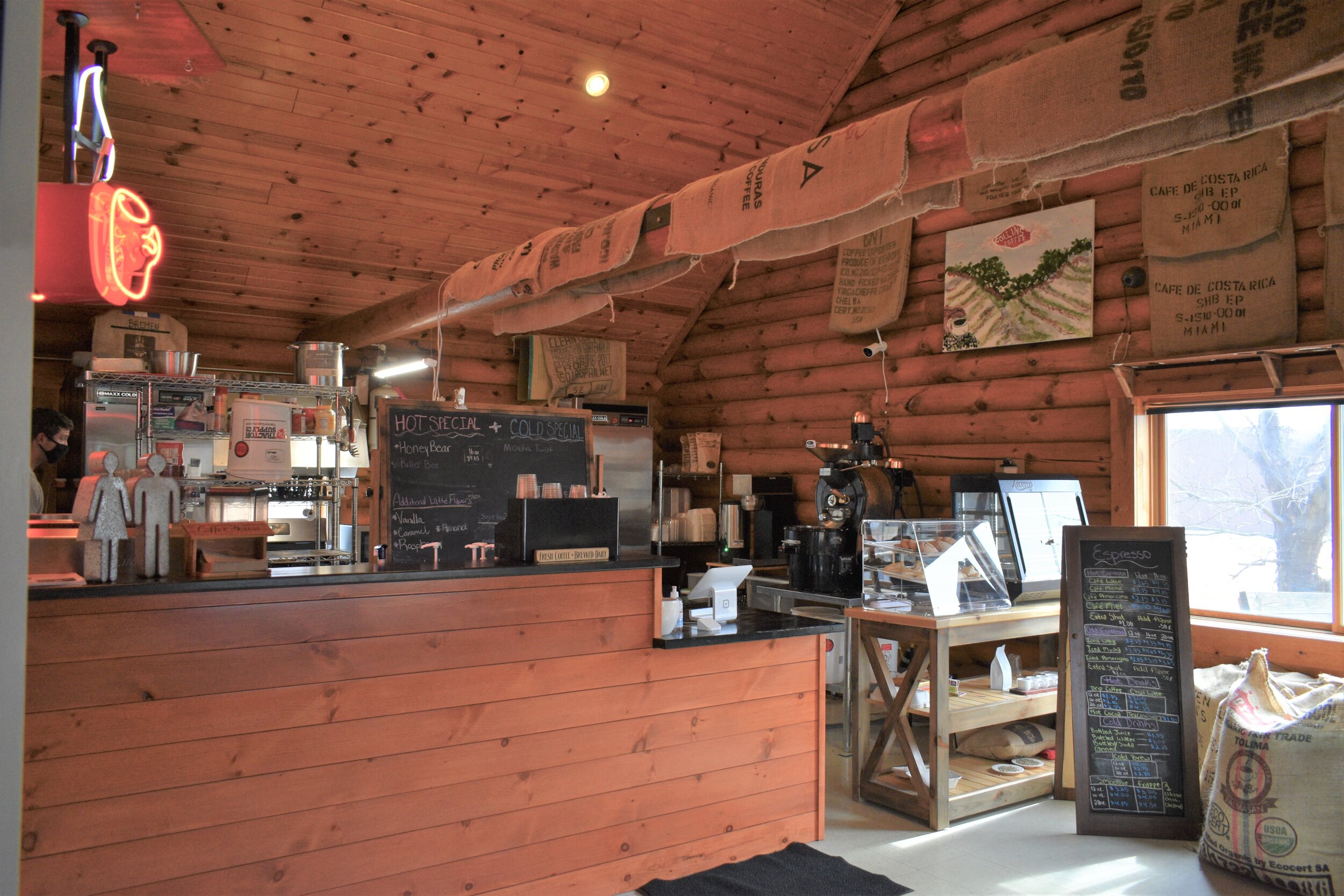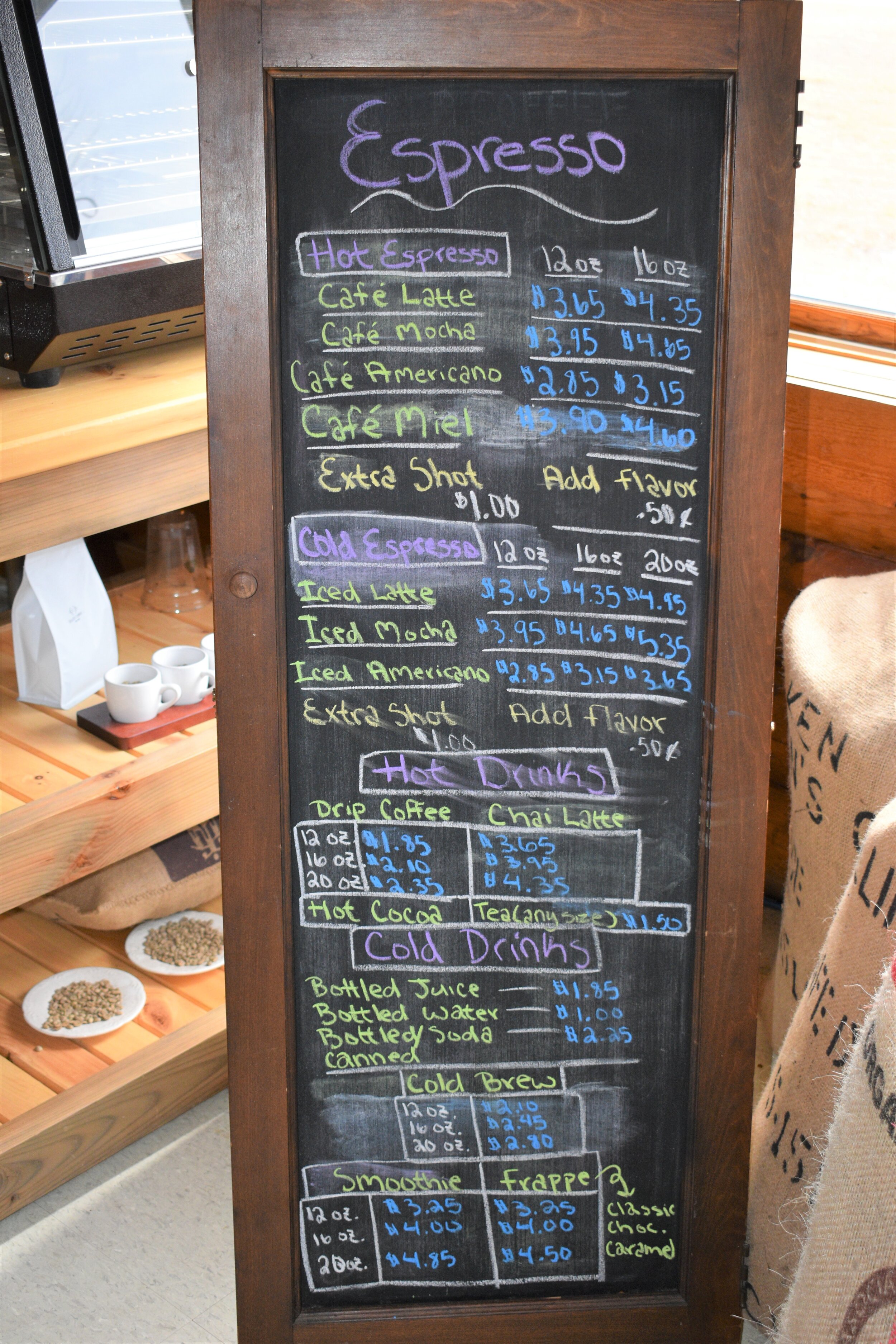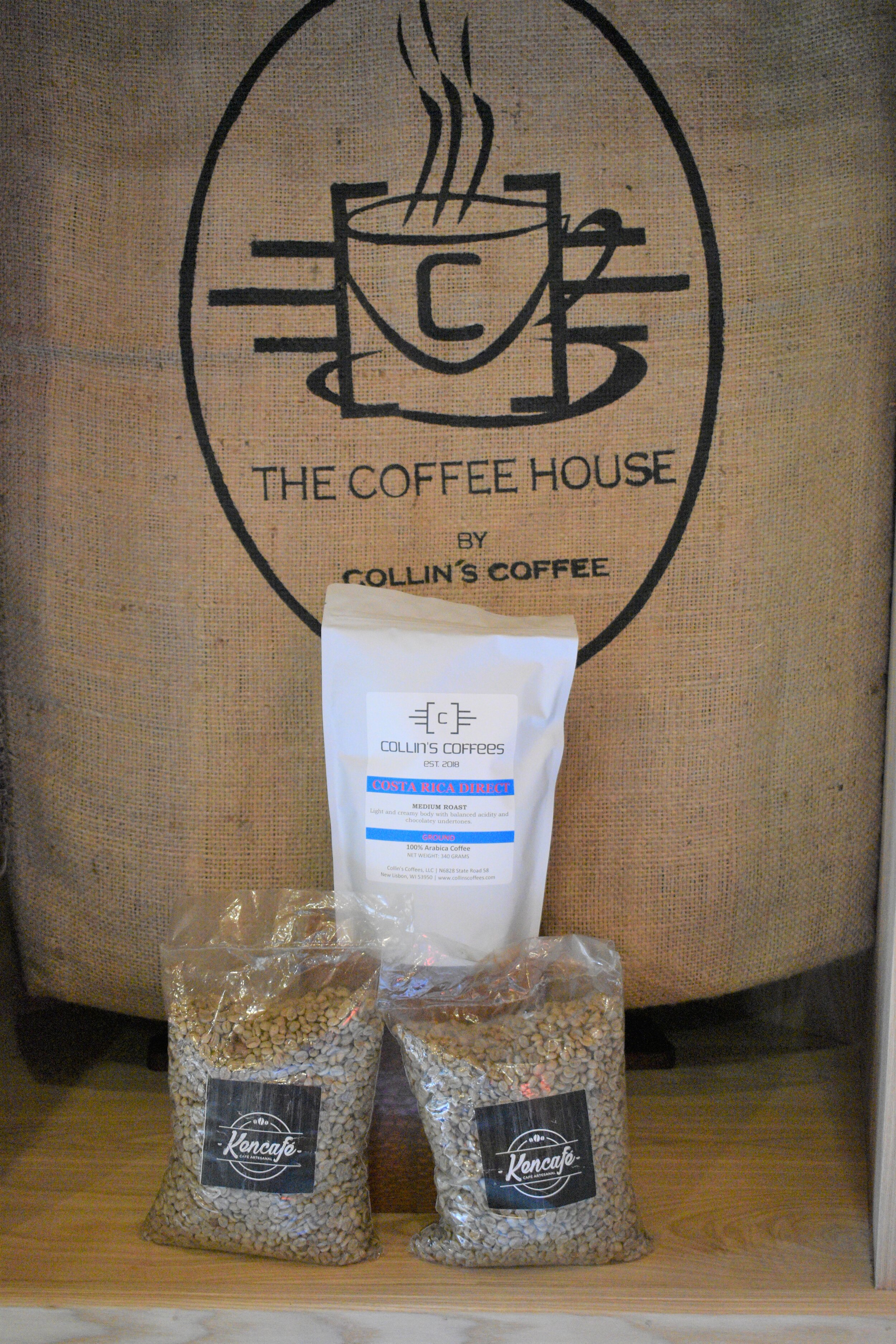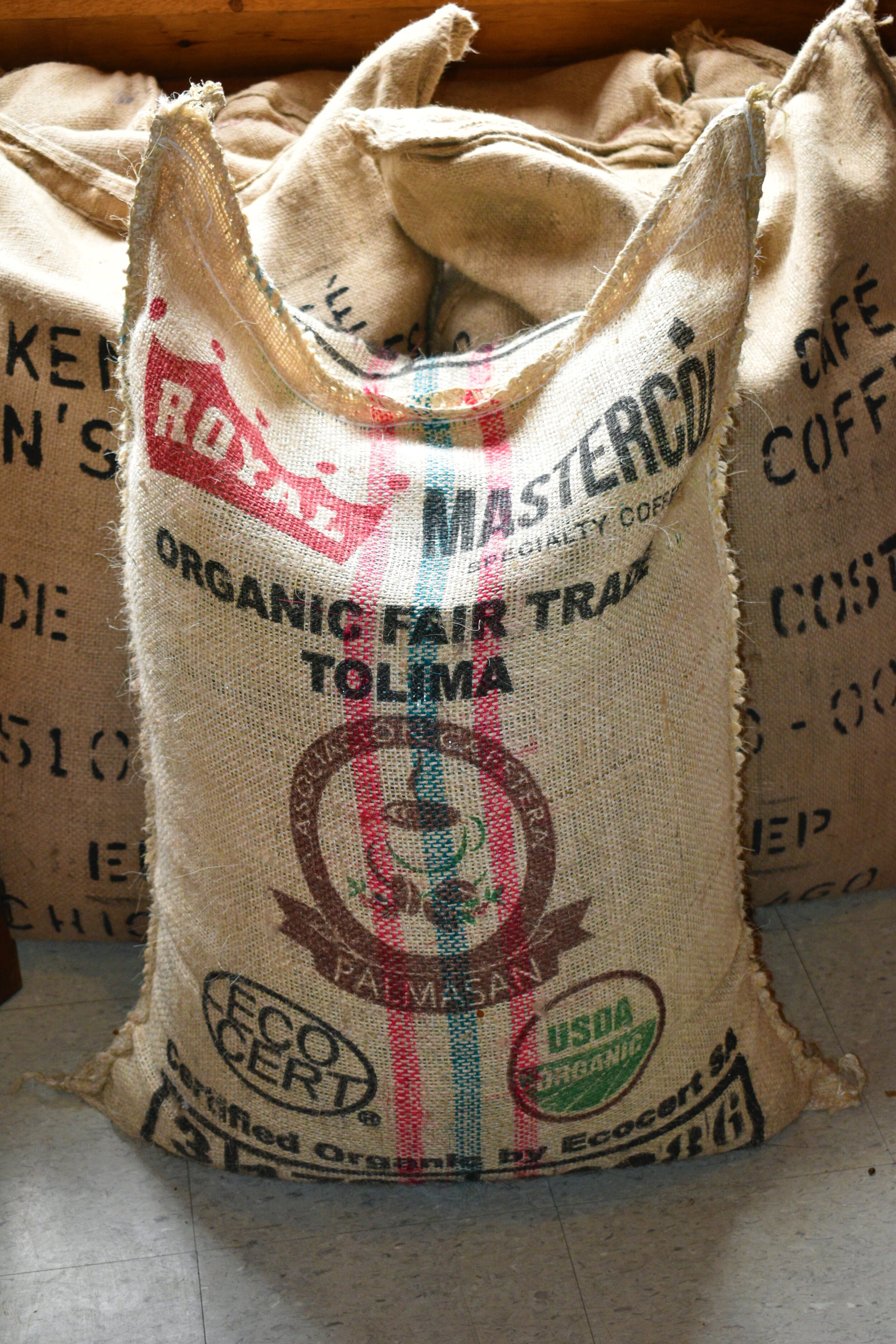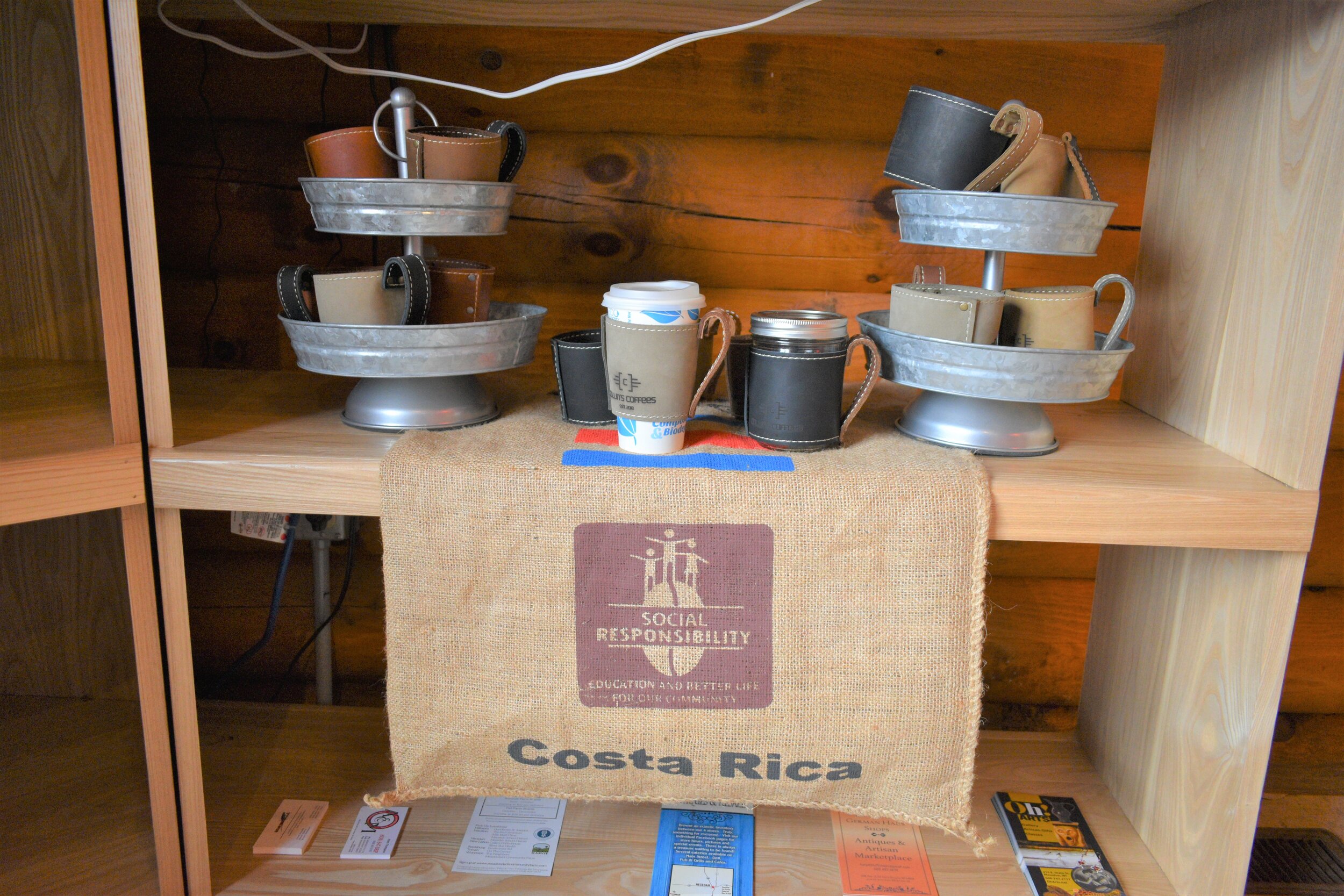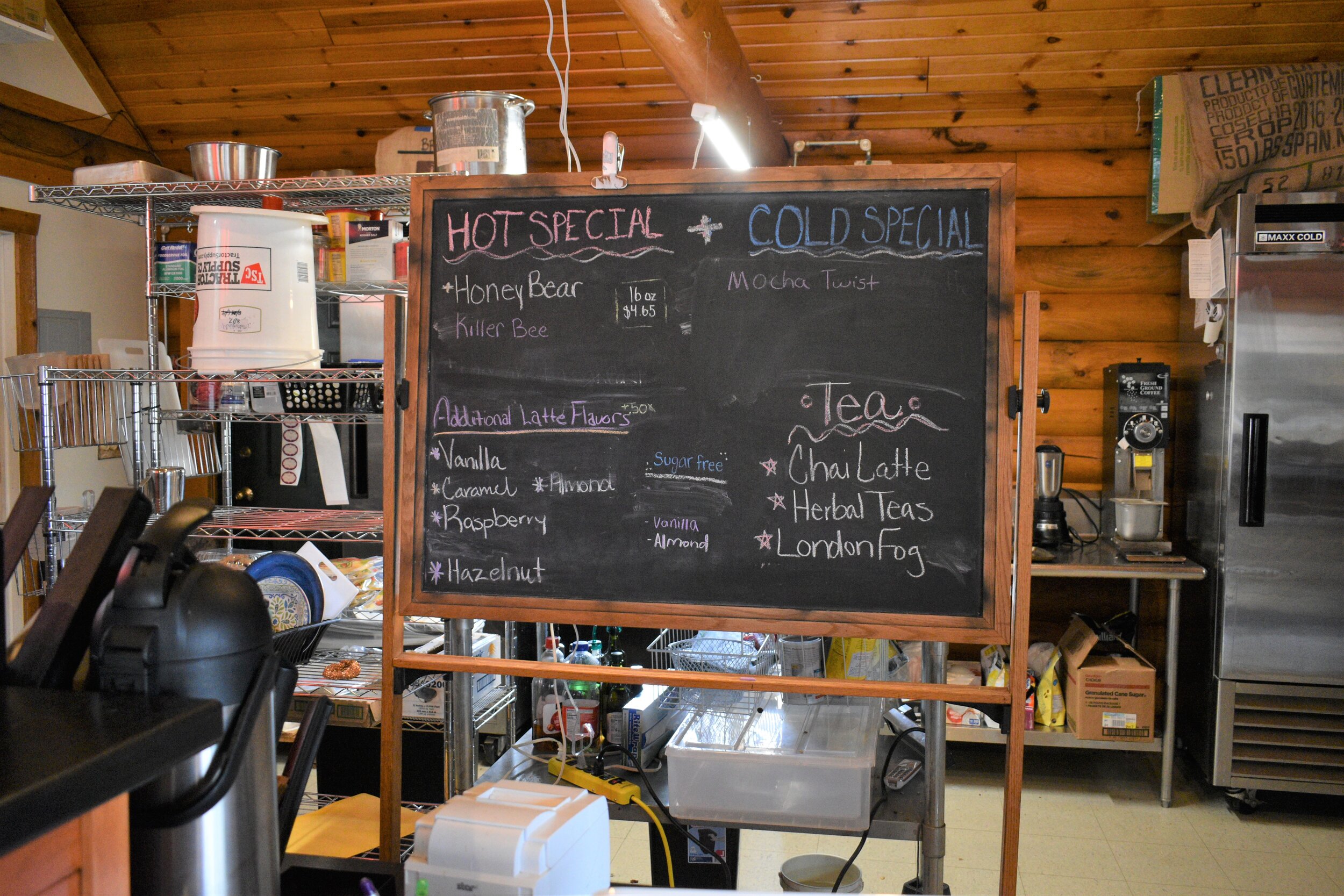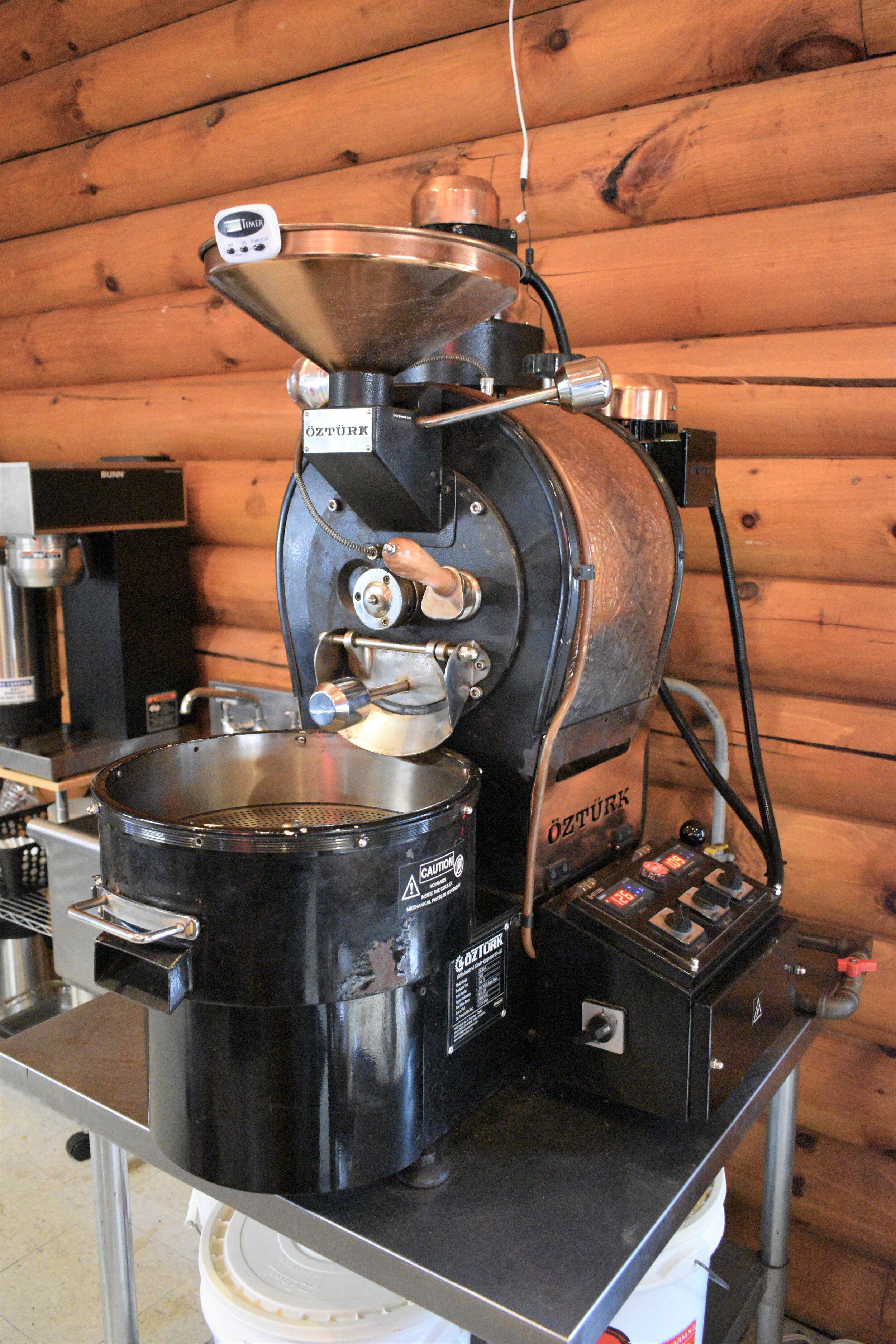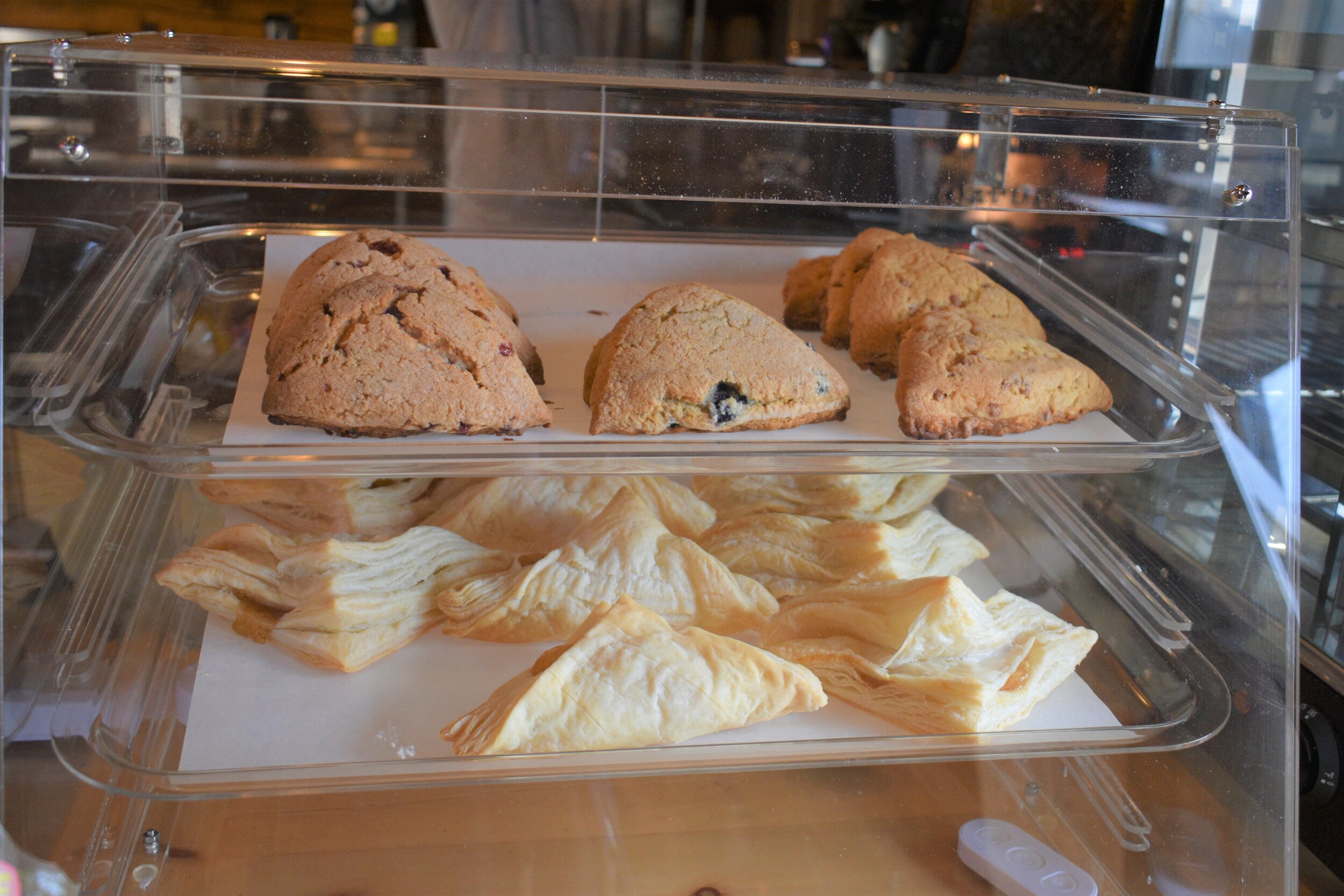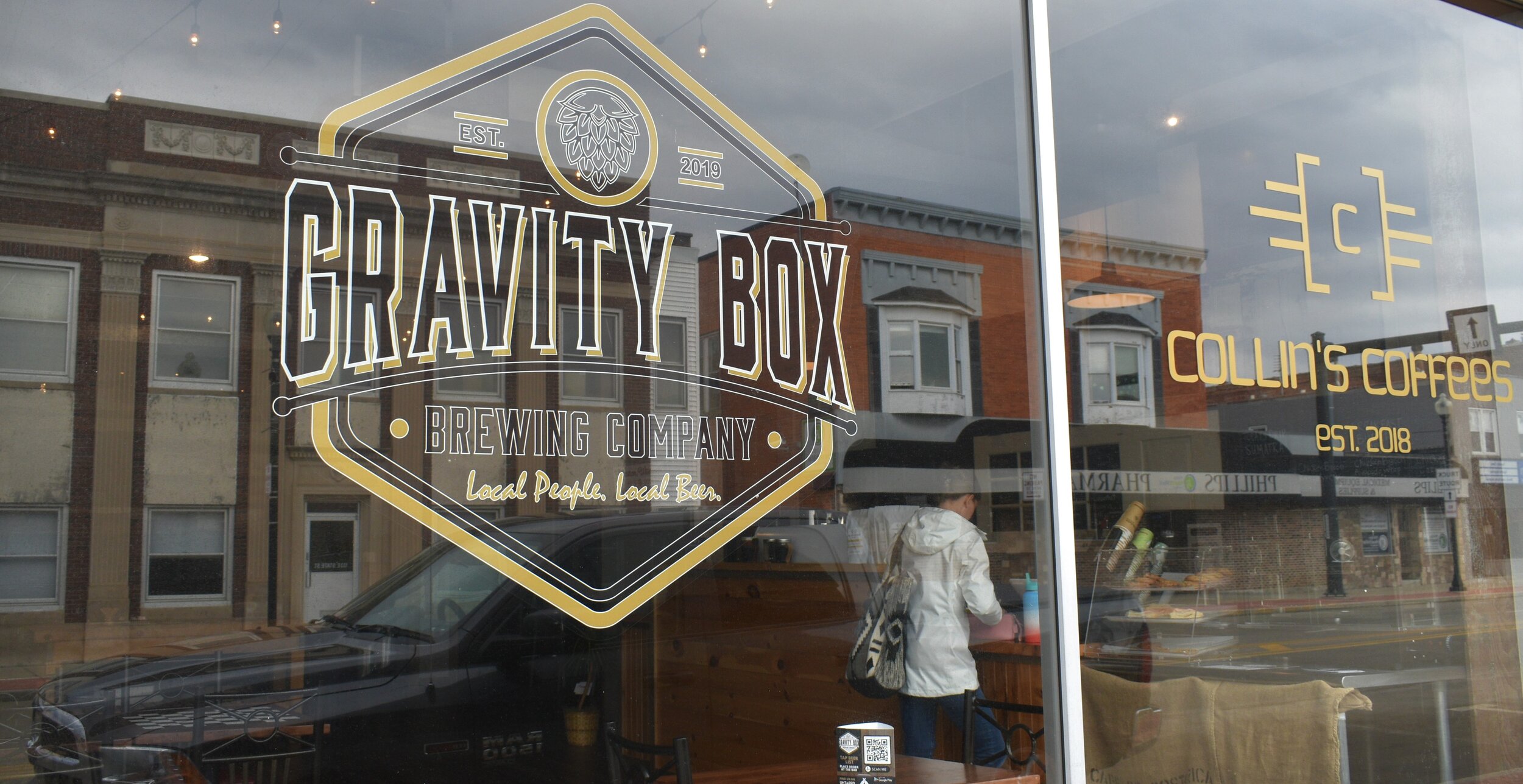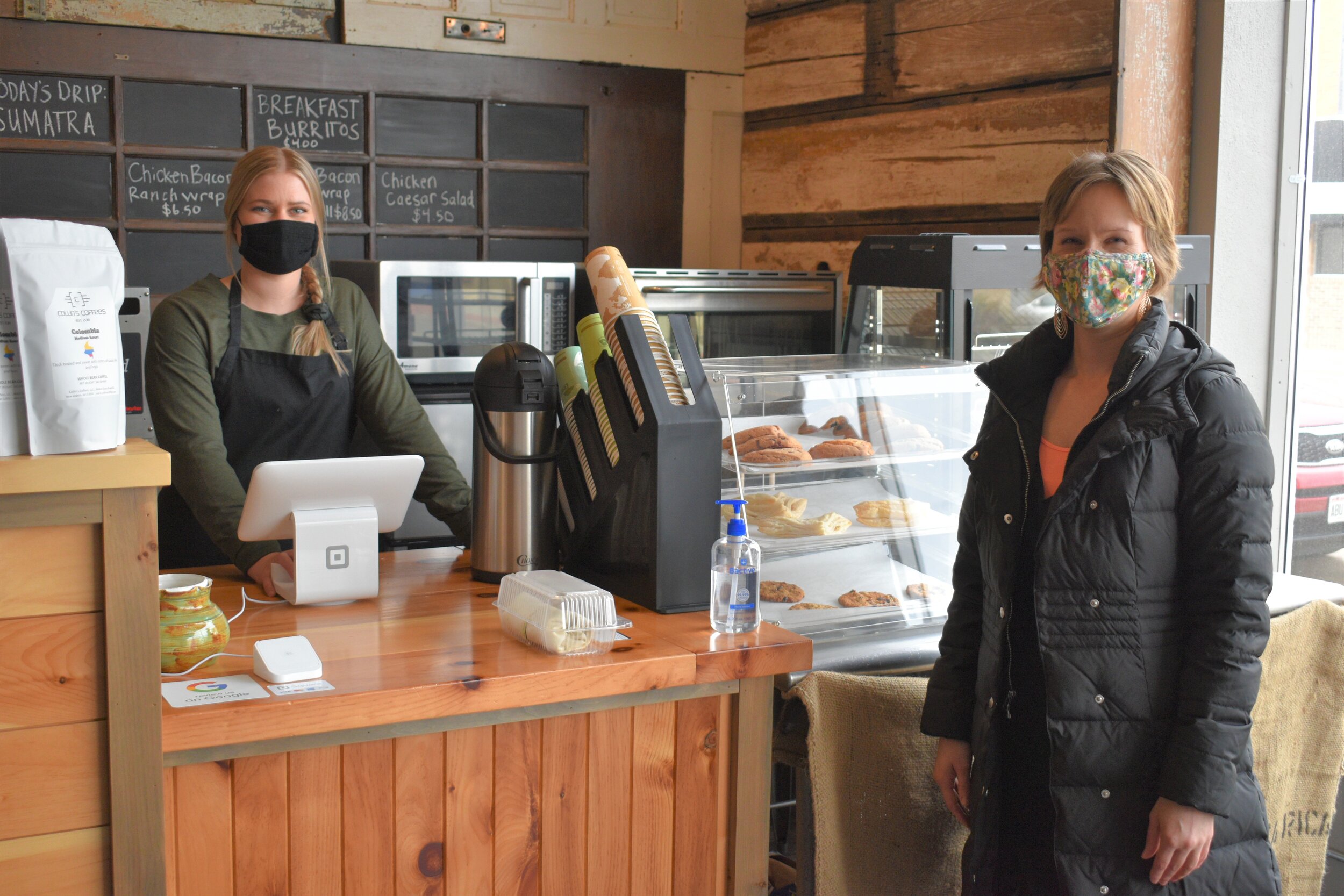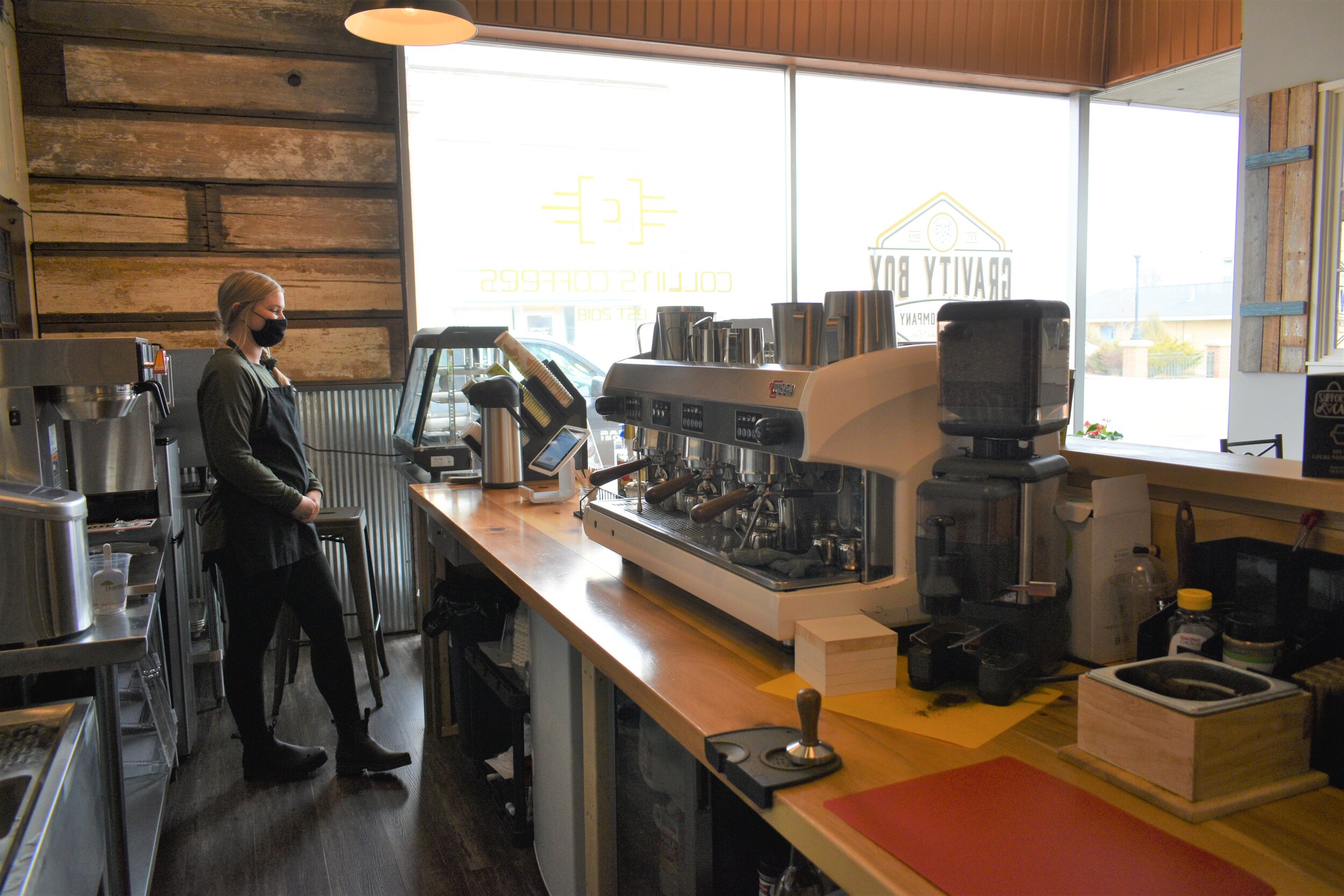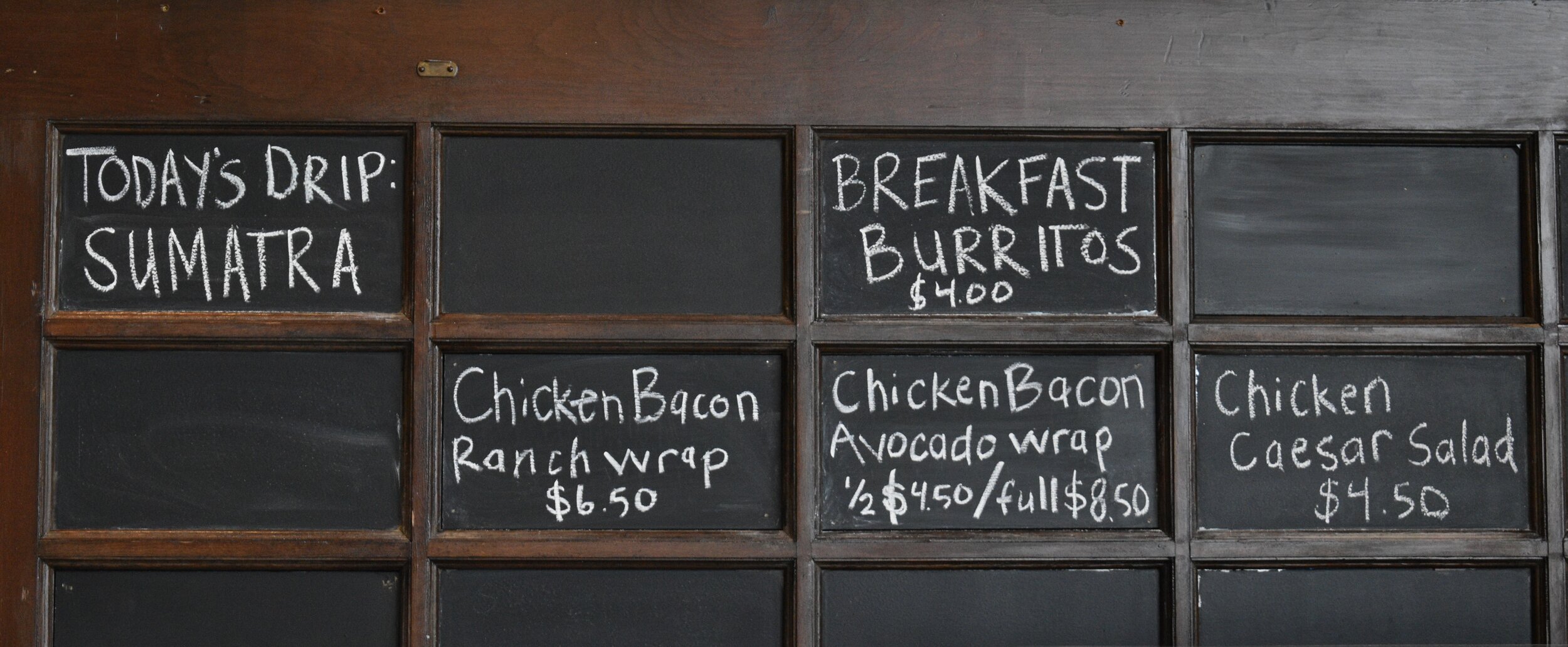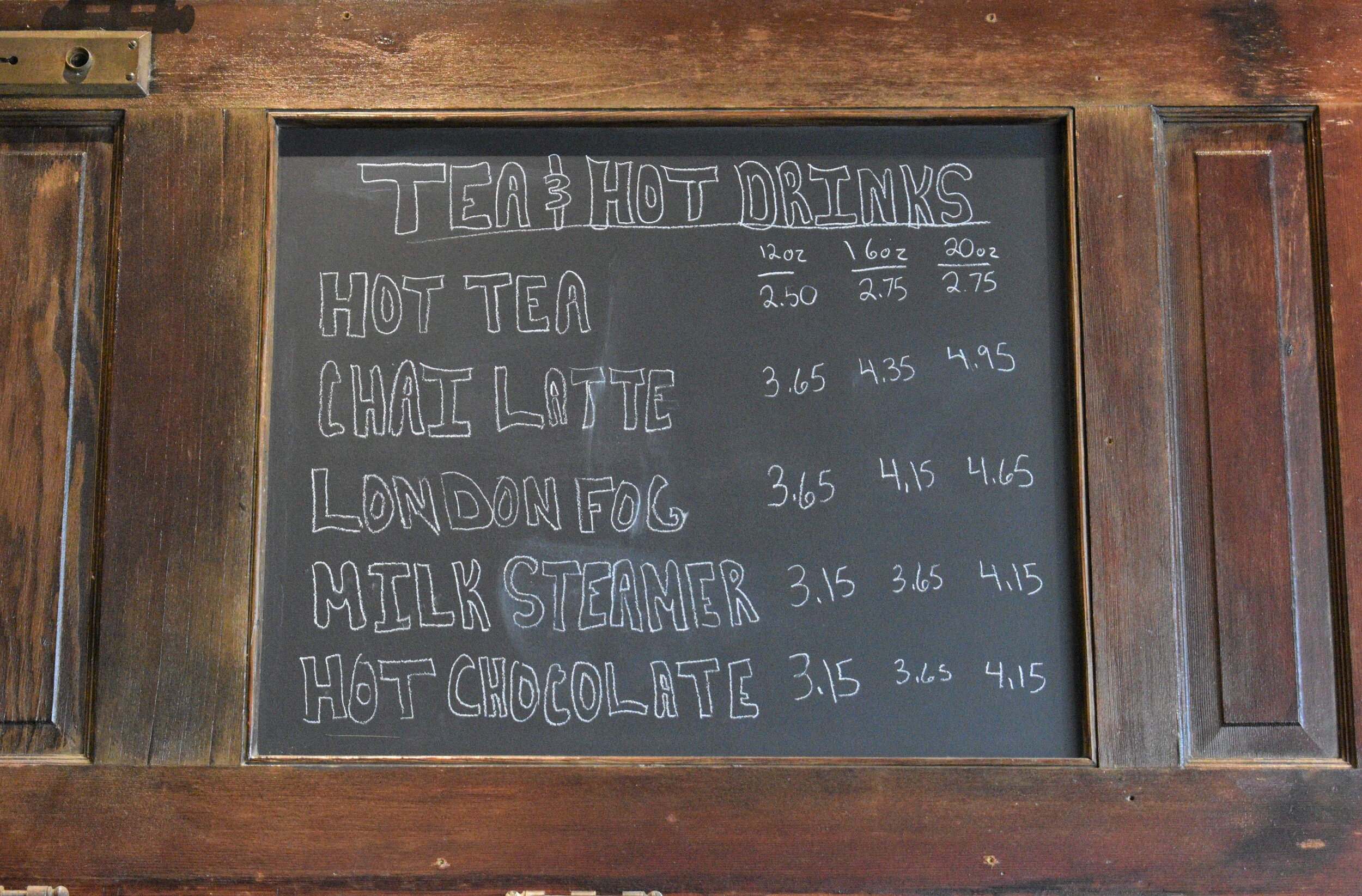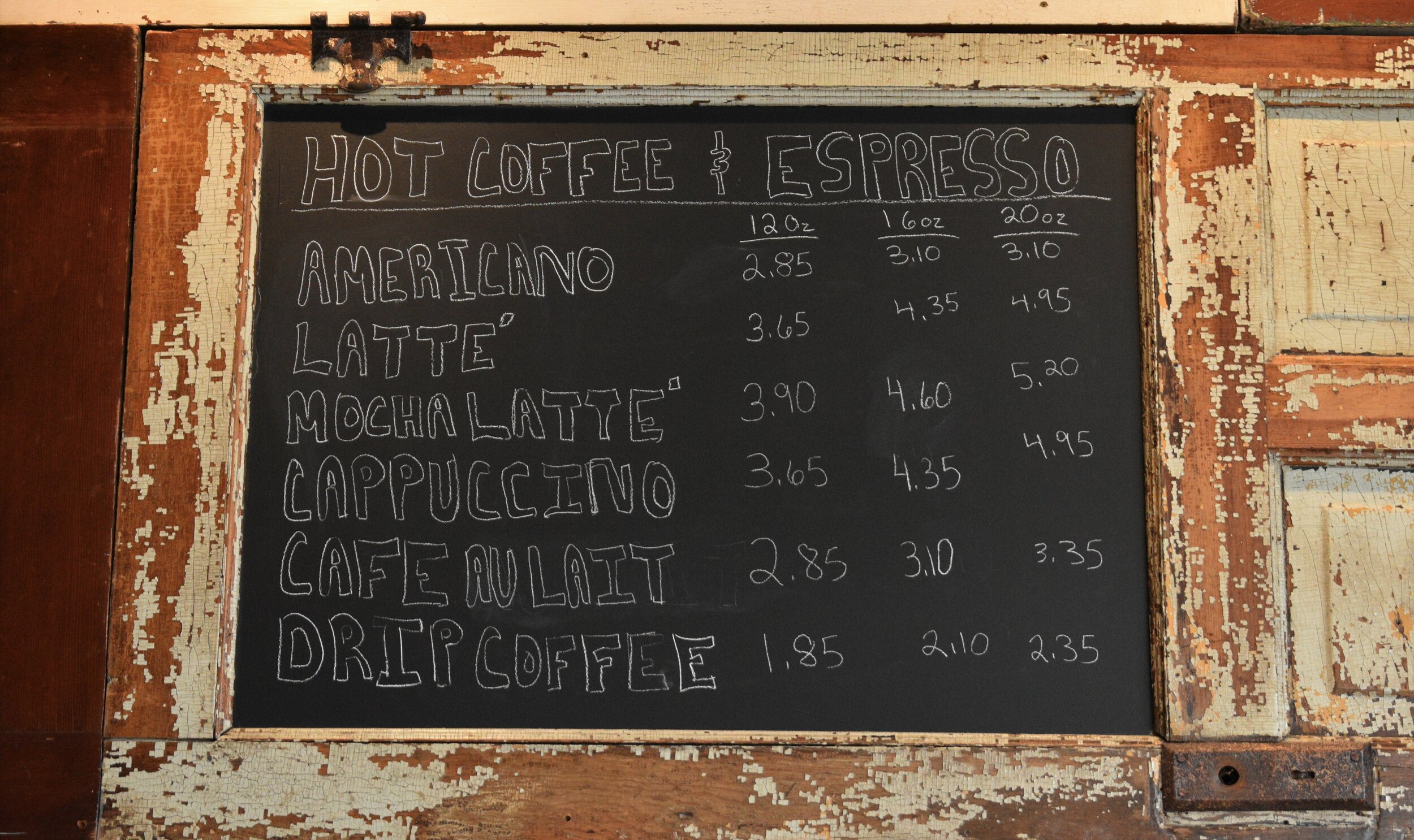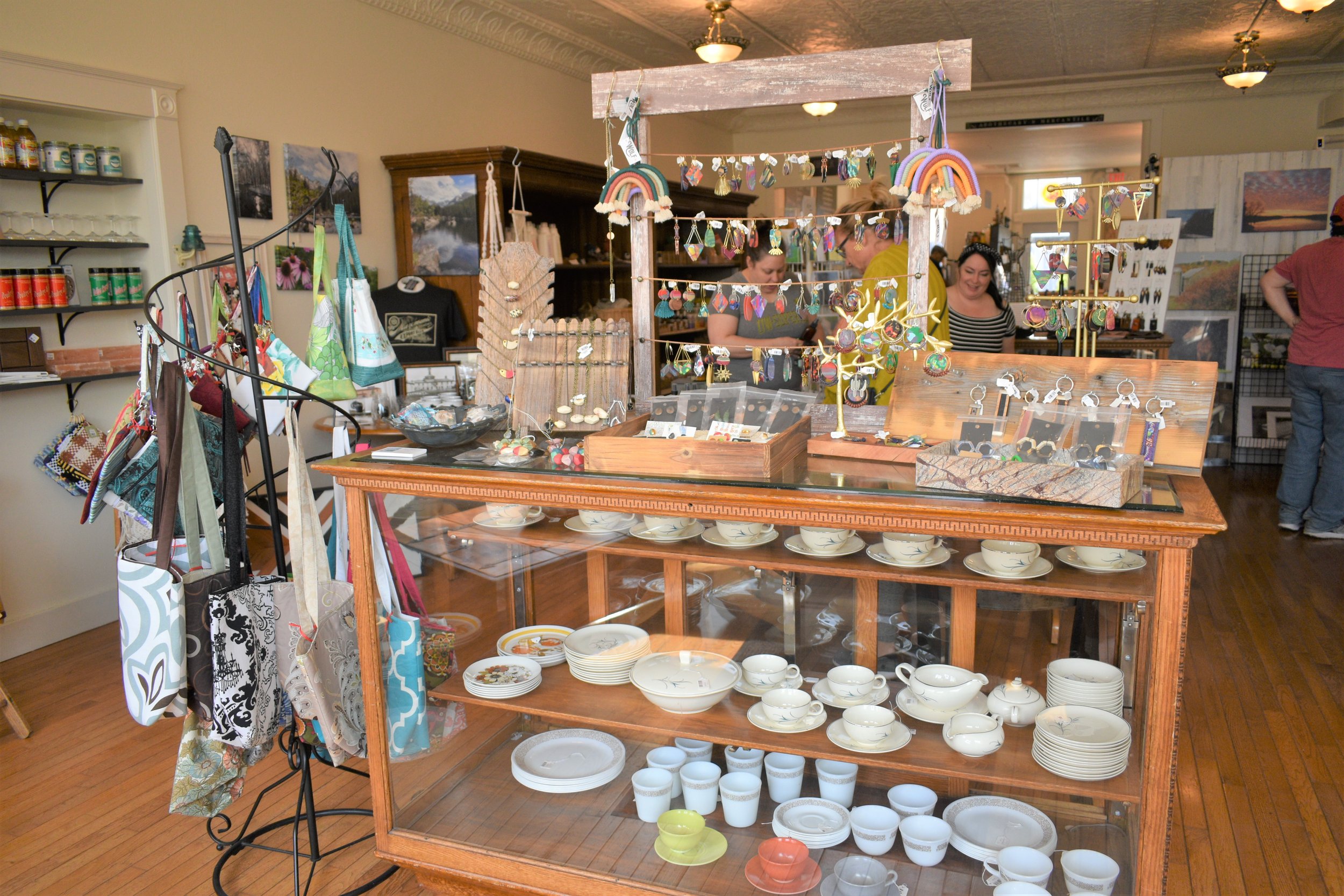Collin’s Coffees: a taste from Costa Rica
Coffee, yes coffee. That amazing beverage many love to start their day with. Its popularity has been on the uptick for the past decade or so. Small coffee shops serving made to order espressos and lattes seem to be growing in numbers.
31-year-old Army Veteran Collin Boudreau, owner of Collin’s Coffees in New Lisbon and Mauston, Wisconsin, is no exception. His coffee houses offer direct trade house roasted coffee, house baked pastries, unique breakfast and lunch options, and coffee roasting services.
Collin’s story is not just one of serving you an average cup of the dark goodness, but roasting in house some of Costa Rica’s finest coffee beans while supporting and promoting fair trade coffee.
“I guess I fell into it,” said Boudreau. “I'm from the area, originally from New Lisbon.” Boudreau was transitioning out of the military when he jumped into the coffee industry. “I was in the Wisconsin Army National Guard for nine years. While I was in, I was kind of looking for the next thing. I also had a dual status job, so I was in the guard but I also worked full time for the Guard so that was my full-time position, and I was looking to get out of the military, in general. Then, kind of that last I'd say six to eight months that I was in, I just started researching what to do next.”
One day, as he put it, he “stumbled across coffee roasting”. Soon after it became a passion. Boudreau recalled his work had an ‘office coffee club’ that involved everybody bringing coffee, one upping each other. “That's kind of what made me start doing research, figuring out what made coffee good, learning about the origins, and things like that. Then, it just kind of became a small thing in the back of my mind that I'd love to start a coffee business,” he said.
One of Boudreau’s co-workers, Dave Williams, was the first one that pointed out that coffee tastes different based on where it comes from. Boudreau was now hooked and he would seek out mentoring in Costa Rica.
Fast forward a couple of years. When Boudreau got out of the military, he worked at a couple of other jobs that really weren't fulfilling for him. Through life circumstances, he was looking for the next big thing, and found himself on vacation in Costa Rica. While in Costa Rica he was joking around with the friends that he went there with and said, “This coffee business that I've been talking about for the last four or five years, I'm gonna do it!”
“I ended up touring a farm, just like a tourist farm, you know, where you kind of pay to go tour it. I think sometimes people buy with emotions, more often than not, I certainly did. I fell in love with it.”
Taking the next step, Boudreau met with the owner of a coffee farm. “His name was Alan, just a super nice guy, super helpful. I fell in love with the coffee and I said 'hey I want to start a business in the United States, how can I do it with your coffee?', and he said, 'Well, you can't, but I have a friend. He ended up introducing me to a friend of his Salazar who was just a small business owner in central Costa Rica, who did engine mechanics. He had a small engine repair shop, but he also did coffee processing for the local market and is the owner of Ken Cafe. He would take the cherries and seeds from the local farms, dry them on a bed or process them through milling equipment, and then roast and sell them at the local market. He was about my age and would probably be best described as a crazy entrepreneur type. And Kenyel, this guy's name, was more than willing to do whatever it took to try to figure out how to do this.”
Boudreau came back to the States not having any clue what he was doing, had never roasted coffee, had never worked in a coffee shop, and did not own a business. “I finally filed my LLC and went back, that way I felt like it was a real business,” he said. Eventually Boudreau returned to Costa Rica and over a couple of weeks he and Salazar visited a couple of coffee farms, mills, and visited the Icafe, which is the Institute for Coffee in Costa Rica.
Things progressed quickly, Salazar became a licensed exporter and Boudreau registered both of them with the Food and Drug Administration (FDA), and the two shipped their first pallet of coffee back to the United States. The stage was set and Salazar was Boudreau’s supplier of direct trade coffee.
Direct trade is important to Boudreau, it allows him to cut out as many of the middlemen to the point of actually handing cash to the producer. “That's the way it was for me this most recent trip. I mean, sometimes it's not as direct as that, like oftentimes Salazar is our guy that we work with, but that's still pretty darn direct that's one step away. I work with Salazar to work directly with the farmers, sometimes even standing on their farm handing them a stack of cash for the coffee that I'm taking with me at that moment, rather than buying it from somebody who's already imported it, who bought it from an export, or who bought it from a micro mill, that bought it from a group of farmers, and don't know anything about where their coffee is from.”
Boudreau acknowledged that in essence, when you are doing a direct buy it affords more control over quality and the confidence that coffee farmers are receiving what they deserve for their product. “It's fulfilling in that way, like you can see the farm, see the quality practices that are being done, see the labor practices, and they all go together. I think if you go to a farm and you notice that the workers are kind of not being treated well, and they're kind of being pushed off to the side, that will usually reflect in their product. If a farmer cares more about production than he does quality, it will show.” In contrast, Boudreau said, "You'll go and you'll see happy workers, beautiful fruit (coffee), like fruit that just looks amazing, healthy plants, and a farmer that is super proud of this product and excited that he gets to advertise it and sell it and sell it directly, rather than just, you know, selling it as a number to a mill.”
Other benefits of dealing directly with a farmer Boudreau pointed out are, you get to sample it, actually taking fruit off the tree and take a bite out of it. He noted you can tell the difference if a farm is using pesticides. In addition, some larger production farms might take all that pulp from the process and dump it in a river or just dump it in a pile somewhere to rid it as waste. The smaller ones that care a little bit more about their quality will do organic compost with it, using it to enhance the soil around the coffee trees.
Boudreau also seeks a farm that exercises companion planting saying, “You'll see a banana tree here and there, you'll see shade trees to kind of give resistance to the plant as it grows, which makes it hardier, which will make more sugars. When you are direct trade buying, you can go there and you can see all the practices that are being done that will contribute to the quality of the product.”
When asked if Boudreau received any help in his entrepreneur endeavor due to his Veteran status he replied, “When I first got back from Iraq in 2009, and when I first got back from overseas, I was in the Guard, so as soon as my deployment was over it was- what am I gonna do now? I was looking at starting a business right then and there. I kind of had that entrepreneur mentality right off the bat. After getting done with that, working for other people doesn't seem as appealing sometimes. I was going to do it and I was looking into Veterans Administration loans and it seemed like they were a lot more acquirable back maybe 10-12 years ago compared to now. I started this business 2018, and by then it seemed like there wasn't really a whole lot for resources. I would say veteran resources just comes in the veteran community. There's nothing more powerful than veterans helping each other. It's one thing for a friend to say hey I'll share your (Facebook) post or whatever, but it seems like when you're connected with other veteran organizations it has helped a lot.”
Life Aid is one of those organizations Boudreau pointed out. Every three months he goes on a cycling trip. “Me and 40 to 60 other veterans travel around the country and go on a cycling trip with a focus on mental health and well-being pretty much. There's nobody who wants to help each other more than those type of people, it seems like. I'd say that's where I've gotten the most help, though networking.” Benefit wise, Boudreau said he really has not used any veteran benefits for his business, but added that having his medical care covered has been a great benefit as the cost of private health insurance is challenging when you're a business owner, and admitted that he didn’t use any specific veteran resources for starting his business.
Boudreau’s first pallet of green coffee came to him in February of 2018, and now he had to learn the process of roasting the product. Learning to roast coffee from his Costa Rican friends, shadowing them, watching YouTube videos, and with a little trial and error, Boudreau came into his own, roasting his own beans.
Originally roasting beans in his garage, Boudreau was able to start roasting out of a commercial kitchen at the German Haus Shops in Camp Douglas, Wisconsin, and purchase shelf space to sell his product. “It's more of like a vendor store. I was in there for a few months, and that was kind of my first commercial spot, from the garage into there, and was roasting there when this place (in New Lisbon) became available. My ultimate plan was to just turn it into a roastery because I didn't really think this would be a location for a coffee shop. But I was wrong, it turned out a coffee shop worked out pretty well. That was right about February, March of 2019 when I moved into this building. I moved the roaster here, had my own space, and kind of tackled the first summer,” he said with a chuckle.
Boudreau pointed out that there's a lot of seasonal traffic with Castle Rock Lake being close by which he said “is super helpful”. “It seems like most of the people that visit our area, they get the idea of what a specialty coffee shop is they're from a bigger area maybe Milwaukee, Racine, or Chicago, and that kind of helps encourage the culture of it around here. It's really neat to actually see that the culture of coffee in this small area is growing.”
Boudreau quickly found opening his coffee shop would entail many hours of work. “I worked by myself for the first four months, six days a week, 10-12, hours a day. It was a bit much. I eventually hired a gentleman, Mike Osborne, who roasts for me. He took interest in coffee when I was still at Target Bluff just from the connoisseur perspective. He said 'hey If you ever need help roasting, I would love to learn.' After a while he came in and he learned how to roast and that helped. He would come in the evening roasting for me and that took some burden off. Then, I was able to hire a couple of part time employees that helped me out through the summer. Towards the fall, a chef came in, that was Scott Babcock. He worked with me for a while, and developed the food program and then moved on, that was sort of the plan there. Throughout the winter I pretty much worked and had a part time force. Then last year, obviously COVID made things complicated. At one point I had like seven people working between here and the Mauston location trying to keep things going. Going into this year we've trimmed it up, slowed it down a little bit. I work here until early spring and then we'll bring back the seasonal staff.”
The end of October 2020, Boudreau opened his second location in downtown Mauston after approaching Gravity Box Brewing Company owner Micah Playman to see if their businesses would be a fit. Playman and his wife were frequent customers at Boudreau’s New Lisbon location. “One day he came in and we just started discussing the roasting process, and he was talking about how he brewed beer. And he was a home brewer and we kind of nerd it out talking about it. We're both proud of our craft; we enjoy what we do. And he was telling me how he had wanted to open a microbrewery in the area. I told him ‘when you do, you need to put an espresso machine behind your bar, because I think every I think every brewery should have an espresso machine. I think every bar should serve coffee’.”
By the beginning of 2020, Playman and his wife bought a building and a discussion was held on how the two businesses would coexist under the same roof. “We just kind of started a joint venture, if you will. They own the brewery and the coffee shop side is all mine. So, they kind of built it out with all that in mind, the coffee shop goes from 6:30 am to 2 pm, and the brewery goes from 2pm to 8pm, at the moment,” Boudreau said. In addition to the businesses sharing space, they combine products. The brewery uses Boudreau’s cold coffee brew to make their Mexican coffee stout and a nitro brew.
As for Boudreau’s future, it will be a busy yet productive one to say the least. Initially, his goal was to connect growers at origin to consumers in the United States. Whether that meant connect a farmer to a coffee shop owner, or somehow even just the coffee drinker to the farmer. Creating transparency so customers know exactly where their product is coming from.
Opening a few more coffee shops is not out of the question as well. “At this point I would like to open one or two, maybe three more coffee shops over time,” he shared and added, “I would like to travel to other countries, because right now my direct trade only involves Costa Rica. I'd like to involve direct trade with other countries as well and expand on that. Also, with the Costa Rican thing- So this is kind of recent development. Last time I was there, Salazar and a couple of his friends and I formed an export company. The goal with that is to get into things like sugar, cacao, maybe plantains, who knows. But at the very least sugar, cacao, and coffee are all things that go very well together. I would kind of like to start importing cacao and make chocolate sauces, sugar to make syrups, and my own coffee because I already do that. That's sort of a moving forward plan for the business. I'd like to become more of an importer, importing supplies and connecting people.”
Boudreau intends to grow his roastery into something larger as well. “I'm roasting in the shop right now and it works. I would like to open a larger roastery and tasting room style facility where the focus is product, helping other coffee shops with processes operations, and even a training academy.” An academy he said would include barista training academy and overall be a complete resource for somebody interested in opening a coffee shop. “Maybe we can provide a lot of services for them for that, while also supporting our own shops,” Boudreau said.
While Boudreau’s rural New Lisbon location gives the rural and Castle Rock Lake a place to enjoy Costa Rican coffee, his downtown Mauston coffee shop has received a warm welcome. Tess, a Mauston local said, “It's awesome. It's right downtown so it's really close to where I work, and once a week I walk over and treat myself to a nice sandwich wrap. So, I'm glad it's here. Tess shared that supporting local business is important to her adding, “I know some of the people who work here so it's nice to just have friends nearby and support their business and their livelihood.”
Barista Katie Radl who works at the Mauston shop chimed in, “It's been a great opportunity to be downtown, and be a part of this new business down here, meeting people, and growing small relationships with customers. With making coffee there's a passion, but people are also passionate about getting their coffee,” she said with a smile.
Boudreau is enjoying himself, but more important to him is the effect he sees his business is making in the community. “So, it's kind of cool to see the culture of people, like even students like stopping in to get coffee before school. It's actually a cultural piece now whereas, what would people do before? Today, you're actually seeing people hang out in the coffee shop, like there never used to be coffee shops. I wonder what they were doing before that. This is kind of interesting to see a small area have a culture change in that.”
Collin’s Coffee shops serve breakfast wraps, house baked pastries and breads from Jossabean Sweets Bakery in New Lisbon,WI and Clark Family Bakes in Hustler,WI and cold lunch wrap sandwiches at both locations.
